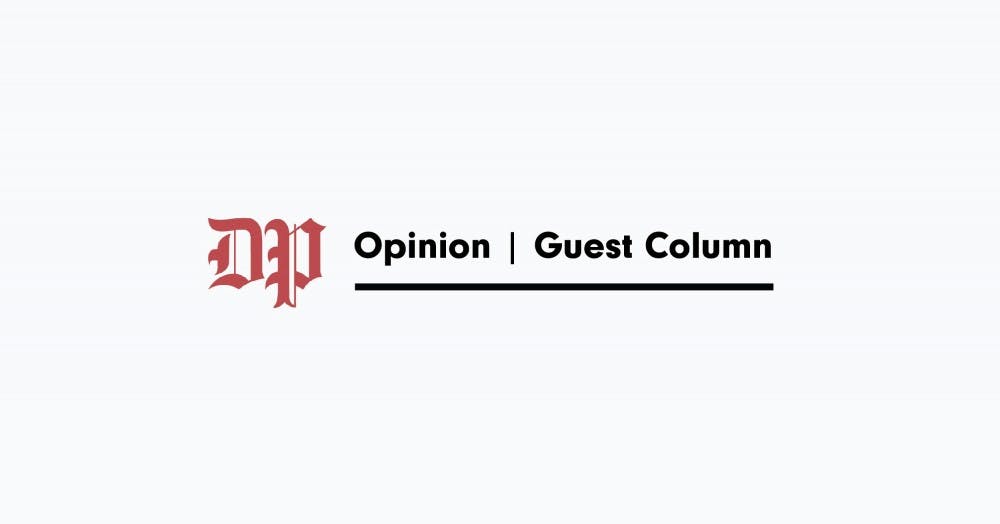After the recent atrocities in Westminster, Manchester and London, the politically correct in the United Kingdom and the world are yet again fully engaged in assiduously ignoring the threat we all face.
The facts are as plain as they are uncomfortable — the world is currently living through an unprecedented threat, a modern enemy fighting for an archaic, theocratic vision that President George W. Bush correctly predicted will find itself “in history's unmarked grave of discarded lies.”
However, this is not a passively attained eventuality, or a sentiment describing unavoidable or alacritous change. It is the job of the West and the Muslim community to make it so. Ignoring reality negates neither its existence nor its impact.
President Trump’s Riyadh speech, while too diplomatic in my estimation, did include an essential point about the dichotomy of complacency and confrontation: “It is a choice between two futures – and it is a choice America cannot make for you. A better future is only possible if your nations drive out the terrorists and extremists.”
Let us examine, then, the condition of modern Muslim opinion in the nations to which Trump refers, and that of their coreligionists in the West.
At the start of this analysis, I feel it is necessary to make an important disclaimer, and I really hope that readers who disagree with the premise of this article will at least read up to this point. None of the data I’m presenting justify discrimination against individual Muslims.
There is, I argue, a middle ground between tacit, willful ignorance toward this problem and bigoted misidentifications of it.
According to a Policy Exchange poll of British Muslims, 31 percent said the American government was responsible for 9/11. Amazingly, more claimed that Jews were behind these attacks (7 percent) than al-Qaeda (4 percent). These results are not particular to one thinktank. An ICM poll found that 18 percent of British Muslims believe homosexuality should be legal in Britain. Twenty-one percent did not condemn people who took part in stoning adulterers. In fact, according to the ICM poll, one third said they would tell the police if they knew someone who was getting involved with supporting terrorism in Syria, with the same number refusing to condemn people who take part in violence against those who mock the Prophet Muhammad.
It is abundantly clear, and intuitively reasonable, that Western Muslims hold more Western views than Muslims in other parts of the world. It is in these other areas, from Indonesia to Afghanistan to Nigeria, that the unfortunate state of modern Islam is most evident.
Pew Polling has released many comprehensive reports on Muslim public opinion, and they are all very illuminating. On the question of Sharia, Pew found that 72 percent of Muslims in Indonesia, 99 percent in Afghanistan and 86 percent in Niger support Sharia law being the law of the land for all citizens. Pew found that 56 percent of Sharia-supporting Muslims in the Middle East and North Africa and 76 percent in South Asia support killing those who leave Islam; 40 percent of Muslims in the Palestinian areas believe suicide bombings are often/sometimes justified, with 39 percent in Afghanistan and 29 percent in Egypt sharing that view. 57 percent of Jordanian Muslims think suicide bombings against civilians are often or sometimes justified, with 39 percent of Lebanese and 25 percent of Pakistanis concurring. In another Pew report, majorities in Jordan and Egypt have a positive view of Hamas, the terrorist organization that includes the destruction of Israel and of the Jewish people in its charter. Majorities in Jordan and the Palestinian areas have a positive view of Hezbollah, the Iranian proxy which launches terrorist attacks against Israel. (This is all unsurprising, considering that 100 percent of Jordanians and 99 percent of Lebanese have an unfavorable view of Jews.)
I really can keep going, but both brevity and the mercy rule of political discourse compel me to rest my case. Radical Islam is a problem, and it is a serious problem. It cannot be solved simply by warfare, though eliminating the number of its adherents is a welcome phenomenon. It is fundamentally an ideological and civilizational conflict.
Proposing a detailed solution to the problem of radical Islam would take me above both my pay grade and my word limit. It is, in all seriousness, one of the most vexing and essential problems of our time. I submit, nevertheless, that the first step to solving a problem is always frankly acknowledging its existence. For the sake of Muslims and non-Muslims alike, we all need to do that, and swiftly.
MICHAEL MOROZ is a rising sophmore from Philadelphia, P.A., studying in the Huntsman Program.
The Daily Pennsylvanian is an independent, student-run newspaper. Please consider making a donation to support the coverage that shapes the University. Your generosity ensures a future of strong journalism at Penn.
Donate




